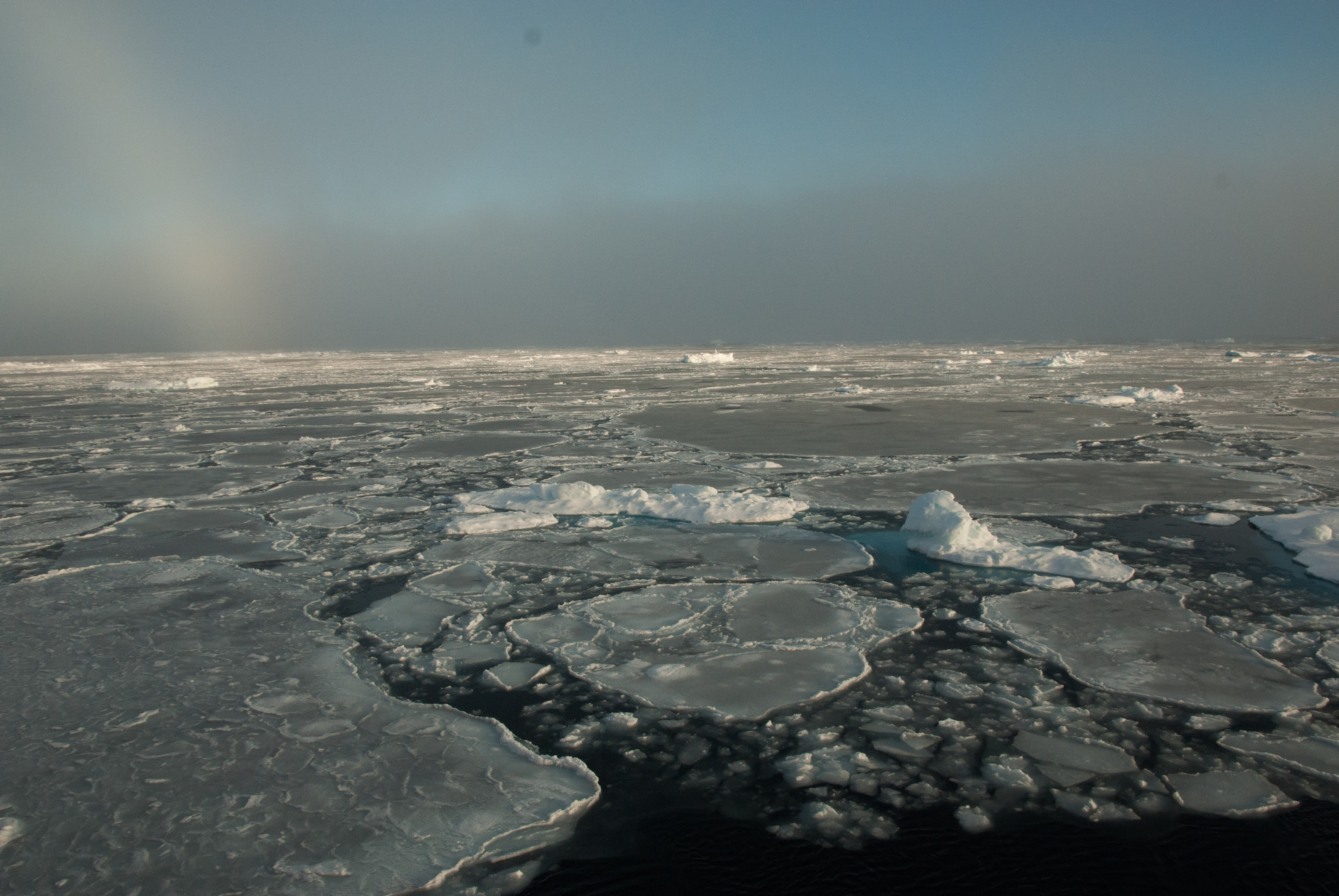Interior takes step toward 2019 Beaufort oil lease sale
Interior’s Bureau of Ocean Energy Management is launching a 30-day “call for information” to gauge interest.

(Alek Petty / NASA’s Goddard Space Flight Center)
The U.S. Department of Interior is moving forward on new oil and gas leasing in the offshore Arctic, targeting some areas that had been put off-limits to oil development in 2015 by President Obama.
Interior’s Bureau of Ocean Energy Management on Wednesday announced that it is launching a 30-day “call for information” to gauge interest in a Beaufort Sea lease sale proposed for 2019. The proposed sale would be the first in a series of 19 offshore Alaska oil and gas lease sales that the Trump administration lists in its newly released 2019-2024 five-year leasing program.
The call for information, to be published in the Federal Register on Friday, will seek input from industry on specific areas of interest for leasing as well as from other parties concerned about the effects of leasing to the region’s ecology, biology, culture or socioeconomic conditions.
“Available information indicates that the Beaufort Sea possesses great oil and gas potential,” James Kendall, director of BOEM’s Alaska regional office, said in a statement. “It also contains unique, environmentally sensitive areas important to the subsistence needs of the region’s Alaska Native communities. This process will help us identify not only the areas that can be safely and responsibly developed, but also those areas that should be protected for wildlife and traditional uses.”
The Trump administration’s five-year plan, which has not yet been made final, envisions three Beaufort Sea lease sales between 2019 and 2024.
The last federal Beaufort Sea lease sales were held in 2005 and 2007; bidding was dominated by Royal Dutch Shell, which has since relinquished much of its Beaufort interests. Shell still owns shares in leases in the Nikaitchuq North unit operated by the U.S. subsidiary of Italy’s Eni S.p.A.
Whether the administration will be allowed to push ahead to sell offshore Arctic leases as early as 2019 remains unclear because of pending litigation.
Environmentalists have sued to overturn Trump’s April 28, 2017 executive order that reversed President Obama’s no-leasing decision for Atlantic waters and waters in the Arctic, including parts of the Beaufort. The Trump administration earlier this month lost in its attempt to toss that lawsuit. U.S. District Court Judge Sharon Gleason on March 19 rejected the administration’s motion to dismiss, ruling that the environmental plaintiffs had adequately established the potential for imminent risk. The executive orders had a “clear intent to expedite energy production in the Arctic and Atlantic Oceans,” Gleason’s ruling said.
In a joint statement Wednesday, environmental groups, including several involved in the lawsuit, criticized what they characterized as a rush to drill the offshore Arctic even before the five-year program has been made final.
“Planning for a Beaufort lease sale this early in the process of crafting Trump’s five year plan is a clear sign that the decision to include the Arctic has already been made,” said a joint statement from groups that include the Alaska Wilderness League, Center for Biological Diversity, Natural Resources Defense Council and The Wilderness Society.
The planned Beaufort sale is an attempt to give a political win to the pro-drilling Alaska Congressional delegation “by starting the process to fast-track getting leases into the hands of the oil industry without full, fair and open debate,” the statement said.
But Joshua Kindred, environmental counsel for the Alaska Oil and Gas Association, said the call for nominations is just one of many steps in the presale process. BOEM is simply trying to determine interest, an important step for planning a “prudent” lease sale, Kindred said.
“Environmental groups should like the fact that this is happening first because this will better inform the scientific and environmental analysis,” he said.